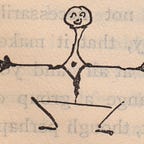Tis the Season … of Exams
As every university and college student knows, and their friends and family, tis the season of exams. Fa la la la lah!
It’s the season of late night cramming, all kinds of stress, and anxious waiting for posted results. I have experienced it as an undergraduate and observed it as a graduate student instructor and for the past twenty some odd years as a faculty member.
For some time now, I have not created that anxiety: I stopped giving exams, at least to undergraduates, over a decade ago not because, as some might believe, I was opposed to exams in principle. (I’m not: exams are really good deadlines, focusing the mind — well ahead of the exam itself one hopes — on the work that needs to get done.) Rather, what I had realized was that students were really good at taking exams.
Since whatever moment in the 2000s No Child Left Behind was passed — and perhaps before then, students had become well versed in taking exams. They expected them, knew them, understood how they worked, and, perhaps like victims of Stockholm syndrome, had come to prefer them to other forms of evaluation.
What they could not do is write. I noticed it early in my teaching career both in writing assignments and even, when I thought I was being merciful and including short, focused writing in exams with short identifications of 3–5 sentences or a paragraph’s worth of discussion a point that was provided in the prompt.
I am not clear on what part of the educational system (apparatus?) has failed them by the time they walk through the door of a classroom in which we will meet, but my students regularly have difficulty with having an idea and then working out a plan to develop that idea into a written communication. That means breaking the idea into tractable parts that can be explored (research) and then being able to build an essay from smaller parts into a larger whole.
The result, for me, has been the wholesale transformation of the last third of most of my undergraduate research-focused courses into what amounts to a research and writing workshop. We start with the proposal, work through how to find similar projects in extant scholarship and science, write analytical paragraphs that tackle a piece of the larger puzzle, and assembling those paragraphs into a practicable essay that offers a synthesis arrived at from the analytical points themselves.
It works, but it also means that my courses are now two-thirds of what I once imagined them to be. It also means that by the time the semester ends, I am exhausted precisely because the writing process makes most of them so anxious, or clueless (often because of their education).
Anxious or clueless, support is required, and, for a month, I am in constant dialogue with a variety of personality types and concomitant types of writers. It’s fascinating but it does mean by the time exam week rolls around, I am grateful that we are done. In the last week of classes, students present their work, which not only gives them a natural deadline but is also a reasonable culmination of a month’s worth of work.
So, if you see me walking around campus with a smile on my face, know that it’s a tired one. More importantly, I hope my students are writing better on those damned exams, which they still think teach them more.
Some universities designate writing-intensive courses, even honor them (or their faculty) in some fashion. If you have experienced such a course, did it make you a better writer? How? I’m always looking to improve!
